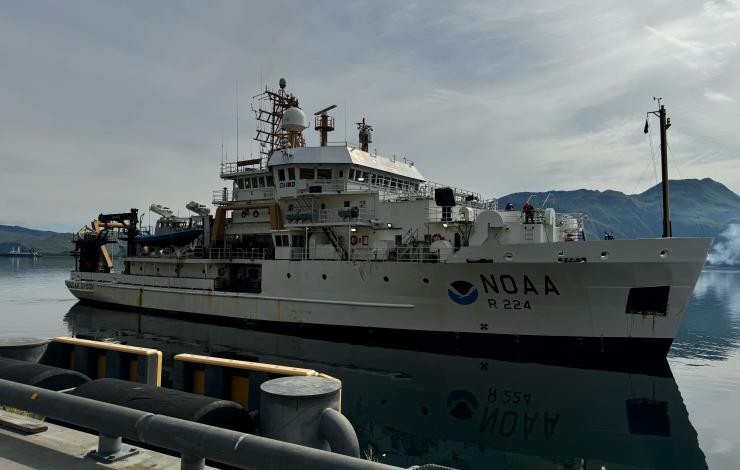PMEL's Ocean Molecular Ecology (OME) program uses 'Omics tools to tackle global ocean issues. We help lead the implementation of the NOAA 'Omics strategy and the National Aquatic eDNA Strategy to advance NOAA's mission of science and stewardship. We seek to leverage advances in molecular biology to scale biological analyses with physical and chemical processes. Our science aims to characterize the impacts of warming, ocean acidification, and hypoxia on marine life. This allows for characterization of marine ecosystems as they respond to a changing climate.
OME work directly supports NOAA's core missions in numerous ways
- Understand and predict Earth systems by characterizing climate impacts on marine biodiversity.
- Develop technology to improve NOAA science, service, and stewardship by advancing 'Omics approaches.
- Transition results so they are useful to society - we do this by creating open access data dissemination, bioinformatic software, and genetic resources.
- Provide stewardship and maintain sustainability of the Nation's living marine resources, their habitats, interactions, and ecosystems by generating critical biodiversity information that is foundational for climate resilient ecosystem based fisheries management.
NOAA 'Omics Website
PMEL Ocean Molecular Ecology Technical Portal
NOAA 'Omics Technical Portal
What's Happening
At the beginning of Fall, just as the trees start changing colors, a group of scientists met to discuss the future of marine microbial observatories in Oldenburg, Germany. Experts in large-scale marine monitoring efforts, microbial observation, and open-access data storage and archiving were in attendance. Dr. Sam Setta, a postdoctoral researcher in the Molecular Ecology (OME) group, represented our group's efforts to develop standardized, reproducible molecular methods to assess ocean health.
The Marine Microbial Observatories for the Future (MMOF) workshop was hosted by Dr. Raïssa Meyer and Dr. Sarah Tucker in the Meren Lab at the Helmholtz Institute for Functional Marine Biodiversity... more
Feature Publication
From the Arctic to the equator, large research vessels serve as mobile laboratories for understanding our oceans. These vessels are foundational to long-term marine ecosystem dynamics and crucial for achieving ocean sustainability across a wide range of disciplines, from fisheries and oceanography to marine biology, climate science, and environmental policy.
A recent review co-authored by PMEL scientists Zack Gold and Andrea Fassbender highlighted the critical role these vessels play in ocean research. PMEL utilizes large research vessels for diverse scientific objectives, including major interdisciplinary cruises such as EcoFOCI, Go-SHIP, and Ocean Acidification expeditions. They are also vital for... more










